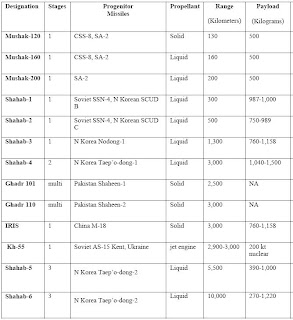

http://www.npr.org/templates/story/story.php?storyId=112945207
"The intelligence community now assesses that the threat from Iran's short- and medium-range ballistic missiles, such as the Shahab-3, is developing more rapidly than previously projected," Gates said. "On the other hand, our intelligence assessment also now assesses that the threat of potential Iranian intercontinental ballistic missile capabilities has been slower to develop than was estimated in 2006."
What this means is that Iran is rapidly gaining the capacity to change what in the parlance of the Pentagon is called the missile raid size.
"We built the original system on the idea of a rogue nation threat — three to five missiles that could come from either North Korea or Iran," said Gen. James Cartwright, the vice chairman of the Joint Chiefs of Staff. "The reality is we're dealing with hundreds of missiles in the medium-range capability. And the likelihood of more than just four or five has to be considered now as we start to build this system out."
Defending Europe
Iran has not yet deployed missiles that can reach Europe, but in the Pentagon's view, it is headed toward that capacity. Earlier this year, it did carry out a successful test of a two-stage missile using solid fuel called the Sejil-2. That has a range of about 1,200 miles, which could reach parts of Europe from Iran.
Dean Wilkening, a specialist in missile defense at Stanford University, says moving missile defenses closer to the Middle East would provide a better chance of defending Europe from missile attack.
"I believe the Polish-Czech system was designed first and foremost to defend the continental United States and secondarily to defend Europe," Wilkening said. "If you reverse the priority order and want to defend Europe first because the missile threats to Europe are going to appear sooner, the Polish-Czech architecture is not the best architecture. In fact, there are others that would provide a better defense of Europe."
Iran's currently deployed short-range missiles can reach Israel, as well as neighbors like Saudi Arabia. The missile defense system the administration is proposing now would station ship-based interceptors in the eastern Mediterranean and possibly the Persian Gulf, much closer to Iran than the planned deployments of the Bush administration in Eastern Europe.
No comments:
Post a Comment